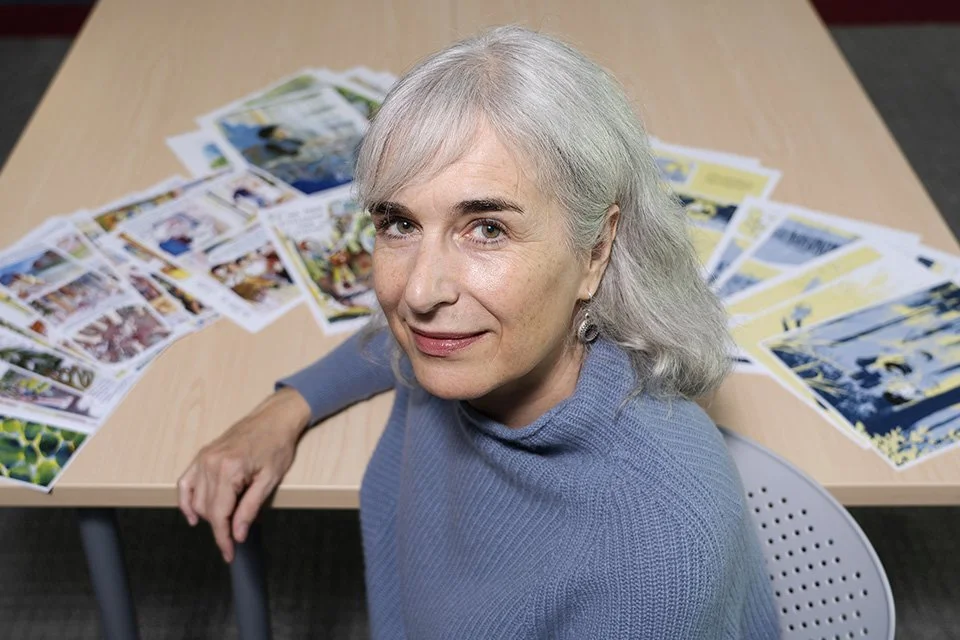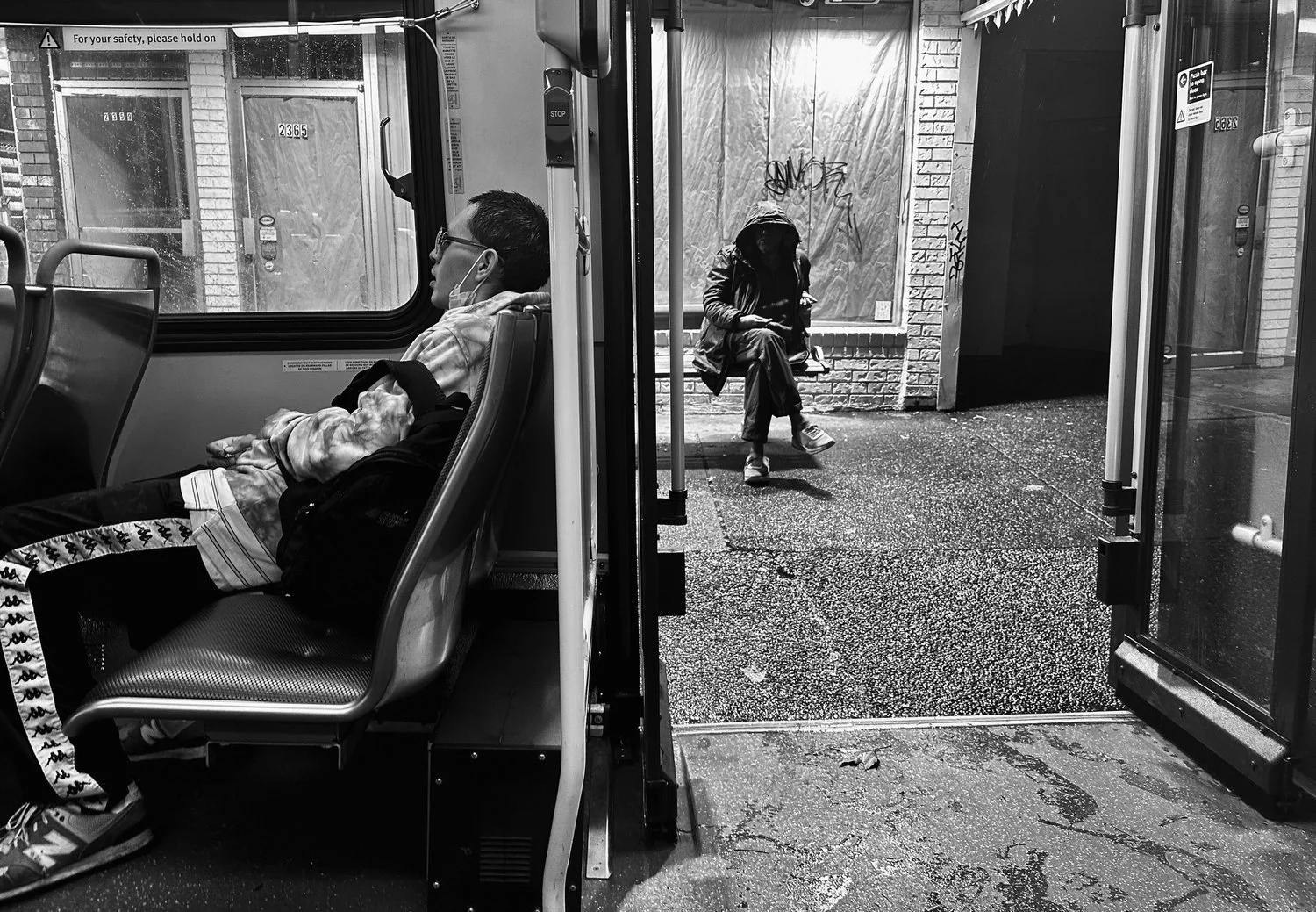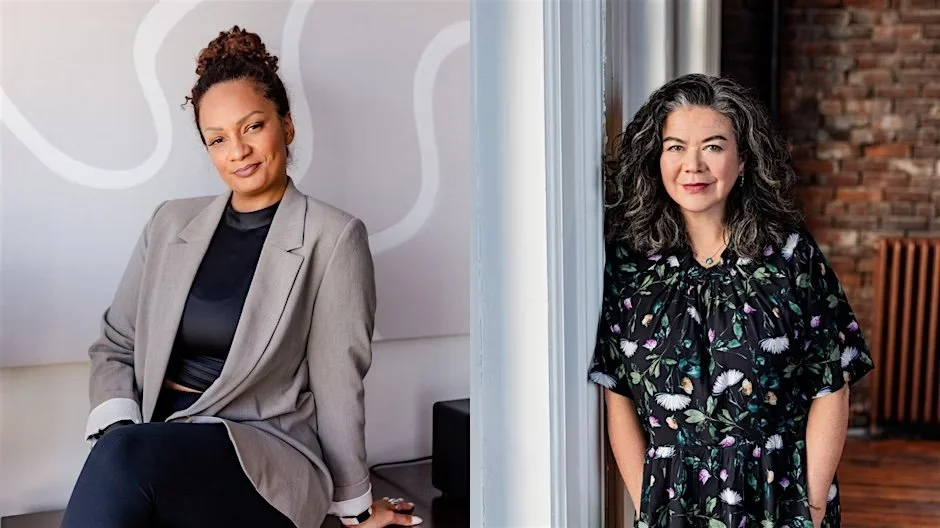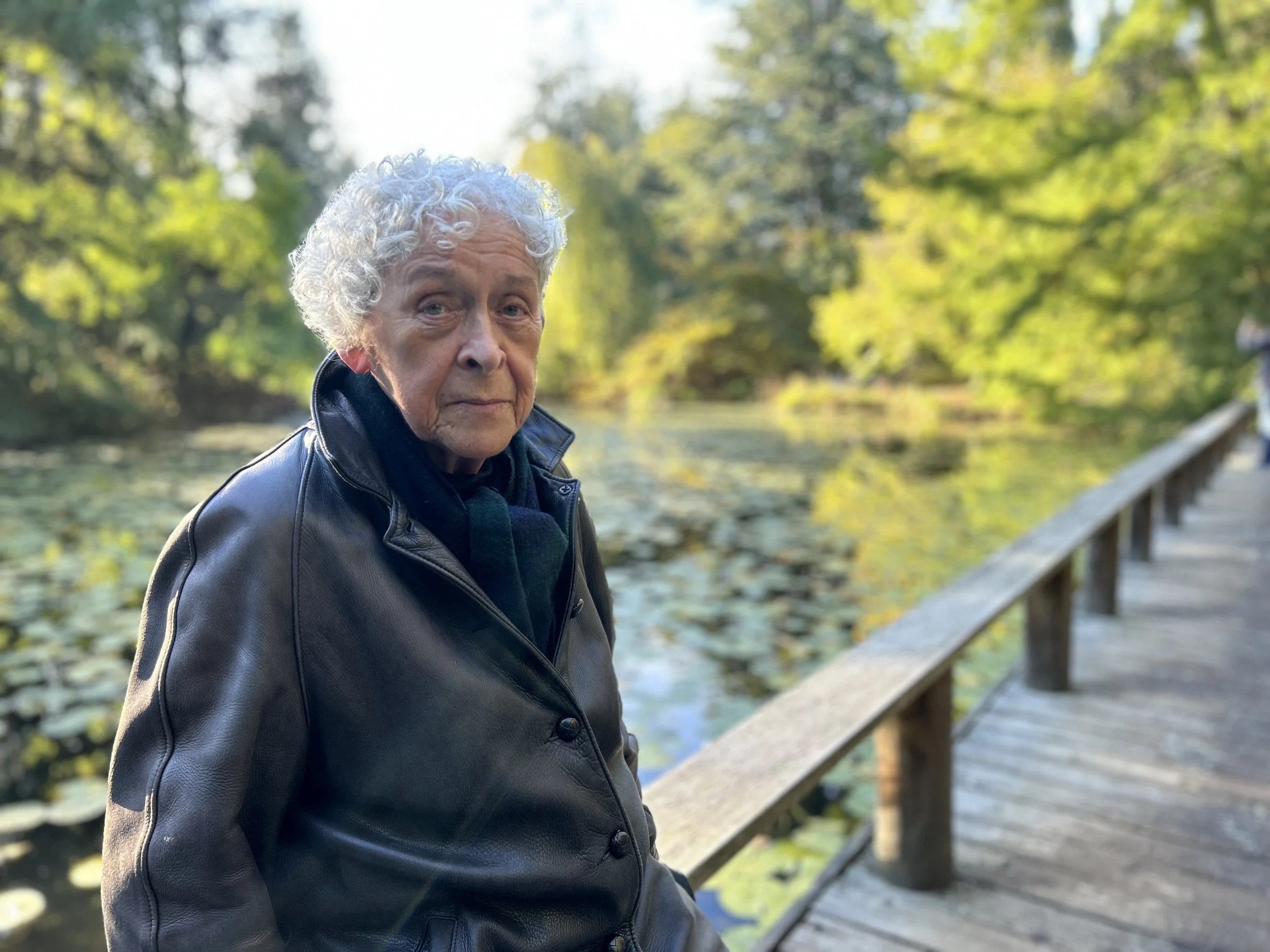At JCC Jewish Book Festival, graphic novelists share stories of Holocaust survival in But I Live
Relating their experiences was not always an easy process for the survivors
The Cherie Smith JCC Jewish Book Festival (February 11 to 16) presents Charlotte Schallié in conversations with graphic novelists Miriam Libicki, Barbara Yelin, and Gilad Seliktar at the Jewish Community Centre of Greater Vancouver on February 12 at 8 pm
WHEN CHILDREN HAVE lived through the most unimaginably traumatic circumstances, shaped by forces they don’t fully comprehend, their minds can latch onto the most seemingly mundane things.
For Rolf and Nico Kamp, it was a pair of rabbits, one black and one white. The brothers had acquired the animals somewhere along a journey that took them to 13 different hiding places in the Netherlands as their family relied on the kindness and bravery of strangers to shelter them from the forces of Nazi Germany.
As the Kamps related to graphic novelist Gilad Seliktar, at another stop along the way, the rabbits ended up on the dinner table, much to the boys’ horror.
The Kamps’ recollections are featured in But I Live: Three Stories of Child Survivors of the Holocaust (New Jewish Press), which pairs survivors with artists from Canada, Israel, and Germany. The book’s editor, Charlotte Schallié, tells Stir that the three very different experiences depicted in the beautifully illustrated stories show that there really is no “typical” Holocaust narrative, even if our cultural understanding has been shaped by the horrific images of Auschwitz and other death camps.
“A more traditional story would not focus on bunnies,” admits Schallié, a professor and chair in the department of Germanic and Slavic Studies at the University of Victoria. “When Rolf and Nico spoke in a very long interview session with Gilad, he found that that came to the fore—the issue of having two pets that were given to them that they felt very close to, that they were attached to, and then because the family was starving, they had no choice. They had to take them away and slaughter them. That was deeply imprinted still in the memories of these two elderly gentlemen.”
Schallié tells Stir that her decision to present survivors’ experiences in the form of graphic narratives was influenced by several different factors, including her young son’s reluctance to read anything but comic books. Her academic work also played a part.
“I used to teach a course, Representations of the Holocaust, and at the end of the class I would oftentimes ask, ‘What was the source, the text, the book, that resonated the most profoundly with you?’” she says. “And students would often say Maus by Art Spiegelman.”
In the groundbreaking Maus, American cartoonist Spiegelman interviews his father Vladek about his experiences as a Polish Jew during the Second World War, which included life in the Sosnowiec Ghetto and internment at several concentration camps, including Auschwitz and Dachau. Maus engendered a bit of controversy—some critics objected to Spiegelman’s decision to depict Germans as cats and Jews as mice, while others deemed the comic-book form an inappropriate medium for such a serious topic—but it was generally lauded and was awarded a Pulitzer Prize in 1992.
Spiegelman had a deeply personal connection to his subject, and Maus is his own memoir as much as it is a biography of Vladek. The artists of But I Live—who also include Miriam Libicki, telling David Schaffer’s story and Barbara Yelin sharing the memories of Emmie Arbel—didn’t know the survivors before they took the project on. Even so, Schallié wanted it to be clear that they were not just impassive recorders of these stories.
“I asked them to bring themselves into the story as well, because I thought it was very important not to just draw attention to the survivors’ voices—and you can see all the captions, speech bubbles, everything is from the actual testimony—but I wanted them [the artists] to be in there too, so the reader will see that this is a relationship, this is mediated,” she says. “Testimonies are always relational; we speak differently, we remember differently in the presence of different people. This is not a monologue, as it’s often presented, and so I really wanted the reader to see the process.”
Charlotte Schallié. Photo by UVic Photo Services
Creating the book turned out to be a three-year, international project. The Washington, DC-based Association of American Publishers just announced that But I Live won in two categories at the 47th Annual PROSE Awards honouring scholarly works published in 2022: Biography/Autobiography and Nonfiction Graphic Novels. The book also won the 2022 Canadian Jewish Literary Award. Schallié acknowledges, however, that it was not always an easy ride for its participants.
“We asked a lot from the survivors,” she says. “We told them that this is a process-based work, it’s over a longer period of time, and we could not expect that they’re familiar with graphic art. We also are very much aware that this kind of work can bring back very difficult, challenging memories. It can bring back trauma, so we wanted to be sure we had a community of care for them so that they could be very well-supported on location.”
Schallié says it’s important to create a graphic record of survivors’ experiences because, as she points out, much of the visual material that exists from the Holocaust is “perpetrator photography”—the Nazis’ documentation of their own atrocities. The subjects of But I Live were active collaborators in reclaiming their own stories.
In a more just world, these child survivors’ stories would read as tragic lessons from a less enlightened century. The real tragedy, however, is that each fresh headline out of Yemen or Ukraine makes But I Live seem less like history and more like reading the news.
“I think the experience they had is an experience that other children have as well, now,” Schallié agrees. “The experience of loss, of not knowing ‘Why are they doing this to us?’, of leaving everything behind, of having to let go, of having to start anew, of family losses to war, violence, genocide, mass atrocities that are sadly ongoing.
“I also think it’s an impetus for the survivors, why they decide to speak in their advanced age, why they take it on,” she says. “It’s very exhausting for them, it’s difficult, but they feel a moral obligation to share the story.”
Let’s give the final word to survivor Arbel. In a section of But I Live titled “In Their Own Words”, she offers this simple but profound advice that all of us would be wise to take: “My words are especially meant for you, the younger generation: Accept people who are different. And spread good in the world, not bad.”















